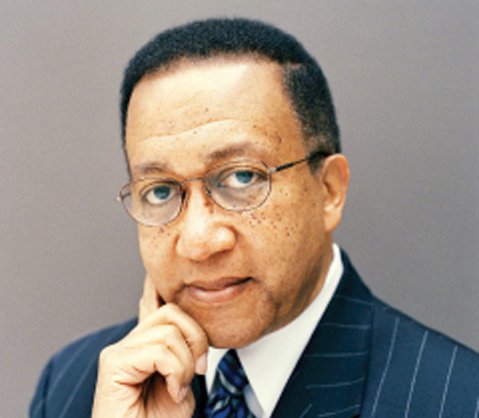Black Press
188 years of excellence
6/19/2015, 4:57 p.m.
Benjamin Chavis Jr.
In recognition of the 75th anniversary of the National Newspaper Publishers Association, it is important to emphasize both the historical and contemporary mission, value and success of the Black Press in America. For the past 188 years black Americans have labored diligently and responsibly to publish and distribute black-owned newspapers in the interests of millions of black Americans and others who cry out for freedom, justice, equality and empowerment.
What the first black American publishers and editors of Freedom’s Journal, Samuel Cornish and John Brown Russwurm, worked hard to accomplish began a vibrant legacy that continues today across the United States by publishers who are members of the NNPA. In the first edition of Freedom’s Journal published on March 16, 1827, in New York City, Mr. Cornish and Mr. Russwurm clearly stated, “We wish to plead our own cause …Too long have others spoken for us. Too long has the public been deceived by misrepresentations, in things which concern us dearly.”
Freedom’s Journal was widely read in the Northeast and secretly read and admired throughout the South among those who were fighting the oppression and brutality of slavery. Thereafter, wherever black Americans were concentrated across the nation, the emergence of the black-owned newspapers came forward with a firm commitment to excellence in journalism and the empowerment of the black American community.
From the very beginning of the Black Press in America, publishers and editors asserted their constitutional rights of freedom of speech and freedom of the press, as well as the fundamental human right of self-determination. “Pleading our own cause” and speaking for the rights, news, aspirations and dreams of black America continue today as the undergirding foundation of the Black Press.
Frederick Douglass was one of our greatest orators and leaders who exemplified the audacity and genius to challenge all who would seek to oppress and deny freedom and equality. Mr. Douglass also was a freedom-fighting newspaper owner and publisher of The North Star. The first edition of The North Star was published on Dec. 3, 1847, in Rochester, N.Y. Mr. Douglass believed that owning The North Star gave him a strategic advantage to effectively articulate the interests of black American liberation from slavery and poverty.
He stated, “We are now about to assume the management of the editorial department of a newspaper, devoted to the cause of Liberty, Humanity and Progress. The position is one which, with the purest motives, we have long desired to occupy. It has long been our anxious wish to see, in this slave-holding, slave-trading, and Negro-hating land, a printing-press and paper, permanently established, under the complete control and direction of the immediate victims of slavery and oppression.”
This certainly applies to some of the challenges that black Americans face in 2015.
The mission and purpose of the NNPA states in part: “To promote the interests of the Black Press by securing unity and action in all matters relative to the profession of journalism and the business of publishing …To advance the highest and best interest of all people of African descent.”
Today, in a growing multiracial, multilingual and multicultural society, it remains a critical necessity for all black-owned businesses, in particular black-owned newspapers and other media, to be conscious of how the marketplace is changing and transforming. The point here is that black Americans cannot afford to understate the value and market impact of our businesses, institutions and communities. The fact that we are trillion dollar annual consumers in the American economy should translate more effectively and efficiently into strengthening black-owned businesses.
I am optimistic about the Black Press because I see greater business development opportunities today than ever before. Yet we must all learn the lessons from our history and from the shining examples of excellence and determination of freedom-fighting publishers like Mr. Cornish, Mr. Russwurm and Mr. Douglass. From Selma to Ferguson, our struggle for freedom and empowerment continues.
Benjamin F. Chavis Jr. is president and CEO of the National Newspaper Publishers Association.






